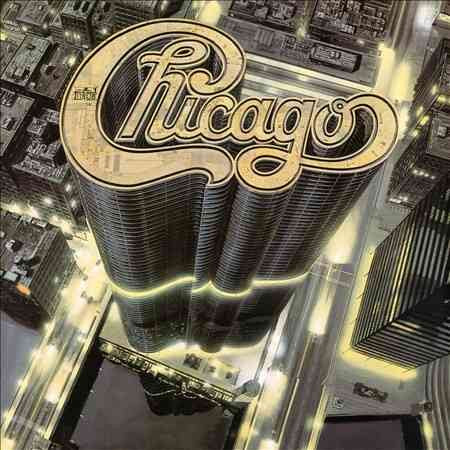Description
Chicago: Peter Cetera (vocals, guitar); Lee Loughnane (vocals, trumpet); Robert Lamm (vocals, keyboards); Donnie Dacus (guitar); Walter Parazaider (woodwinds); James Pankow (trombone); Danny Seraphine (drums).
Additional personnel: Maynard Ferguson (trumpet); David "Hawk" Wolinski, Mrs. Wolinski (synthesizer); Airto Moreira (percussion).
Recorded at Le Studio, Montreal, Quebec; A&M Recording Studios, Hollywood, California.
Personnel: Donnie Dacus (vocals, guitar); Lee Loughnane (vocals, trumpet); Robert Lamm (vocals, keyboards); Peter Cetera (vocals); Walter Parazaider (woodwinds); Maynard Ferguson (trumpet); James Pankow (trombone); David "Hawk" Wolinski (synthesizer); Daniel Seraphine (drums); Airto Moreira (percussion).
Audio Remasterer: Dave Donnelly .
Recording information: A&M Recording Studios, Hollywood, CA; Le Studio, Montreal, Quebec, Canada.
Photographer: Gary Heery.
Unknown Contributor Role: Daniel Seraphine.
While it might be a stretch to claim that disco in effect killed Chicago, as this effort exemplifies, the dance craze certainly didn't help the band, either. After the moderate success of its previous long player, Hot Streets (1978), Chicago seemed to have the fortitude to carry on in the wake of the tragic loss of original member Terry Kath (lead guitar/vocals). With the addition of Donnie Dacus (guitar/vocals) and producer Phil Ramone, Chicago scored a pair of strong Top 40 hits with "No Tell Lover" and "Alive Again." By mid-1979, the fickle pop music tides had fully turned toward the beat-intensive drone of disco. Somewhere along the line the rhythm temporarily fixated the band -- much in the same way a deer reacts to oncoming headlights. As Chicago 13 (1979) proves, the results in either instance are not pretty. The nine-plus minute "extended" opener, "Street Player," could easily be mistaken for a Village People number. The same fate befalls the overtly funky and urban-influenced "Paradise Alley." Interestingly, the latter was originally slated as the title track from a concurrent Sylvester Stallone snoozer of the same name. The disc does contain a few redeeming moments, however. Laudir DeOliveira (percussion) contributes the breezy, jazz-flavored "Life Is What It Is." Featuring an equally liberating vocal from Peter Cetera (bass/vocals), it includes one of the more tasteful horn arrangements on the album. The ragtime blues feel on Danny Seraphine's (drums) "Aloha Mama" has some well-seasoned brass augmentation, proving that Chicago had not completely abandoned its roots or audience. ~ Lindsay Planer
- Format: CD
- Genre: Pop
- Released: 4/22/2003
- Released: 04/22/2003

